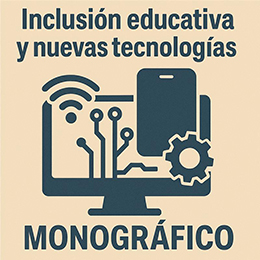Pedagogical models for video communication in massive open on-line courses (MOOCs): a success story
DOI:
https://doi.org/10.51302/tce.2015.34Keywords:
video lecture design, on-line learning, MOOCsAbstract
The initiatives on MOOCs promoted in the United States by prestigious universities, such as Stanford, Harvard, MIT, and by private bodies such as Udacity, aroused great interest worldwide; however the teaching and learning models proposed with MOOCs do not appear to rely on solid theoretical bases and, therefore, on valuable psycho-pedagogical models. The aim of this paper is to analyze some pedagogical aspects related to video communication models in order to highlight the strong and weak points of the educational framework of these initiatives. The teaching models adopted by the International Telematic University UNINETTUNO for its video lessons, the distance assessment systems, the teacher/tutor and student distance interaction models reached such a quality level that it allows us to generalize this model and trigger teaching and learning processes of high quality and to lower the dropouts rates of the students enrolled in MOOCs.
Downloads
References
Ausubel, D. [1978]: «In defense of advance organizers: a reply to the critics», Review of Educational Research, 48, pp. 251-257.
Bower, G. H. and Cirillo, R. K. [1985]: «Cognitive psychology and text processing», Handbook of discourse analysis, New York, Academic Press.
Drake, M. [2014 February 9]: Old school rules! Wisdom of massive open on-line courses now in doubt. Article published on: http://www.washingtontimes.com/
Gagne, R. M. and Briggs, L. J. [1974]: Principles of instructional design, Oxford, England, Holt, Rinehart & Winston.
Garito, M. A. [2000]: «Globalizzazione e ínnovazione: le nuove opportunità di istruzione e formazione», Viaggio tra i perché della disoccupazione in Italia, Milano, Giuffrè Editore.
[1997] Tecnologie e processi cognitivi: insegnare e apprendere con la multimedialità, Milano, Franco Angeli.
[1996] La multimedialità nell’insegnamento a distanza, Milano, Garamond.
[1988] «Multimedialità e televisione: un nuovo approccio alla comunicazione del sapere, Atti dei Convegni Lincei (Roma, 21-25 ottobre 1996), Rome, Italy, Accademia Nazionale Lincei.
Haber, J. [2013 April 8]: Between two worlds-MOOCs and assessment. Article published on: http://degreeoffreedom.org/
[2013 November 25]. MOOC attrition rates- Running the numbers. Article published on: http://www.huffingtonpost.com/
Horowitz, R. and Samuels, S. J. [1987]: Comprehending oral and written language: critical contrasts for literacy and schooling, San Diego, Academic Press.
Johnson-Laird, P. N. [1983]: Mental models: towards a cognitive science of language, inference, and consciousness, Cambridge (MA), Harvard University Press.
Lewis, H. R. [2012]: «Reinventing the classroom», Harvard Magazine, September-October.
Norman, D. A. [1993]: Things that make us smart: defending human at tributes in the age of the machine, Boston, Mass, Addison-Wesley Longman Publishing Co., Inc.
[1988]: The design of everyday things, Basic Press.
Rivard, R. [2013 July 18]. Udacity project on «pause». Article published on: http://www.insidehighered.com/
Vygotsky, L. [1978]: Mind and society, Cambridge, Mass, Harvard University Press.
Downloads
Published
How to Cite
Issue
Section
License
Copyright (c) 2015 María Amata Garito

This work is licensed under a Creative Commons Attribution-NonCommercial-NoDerivatives 4.0 International License.


























